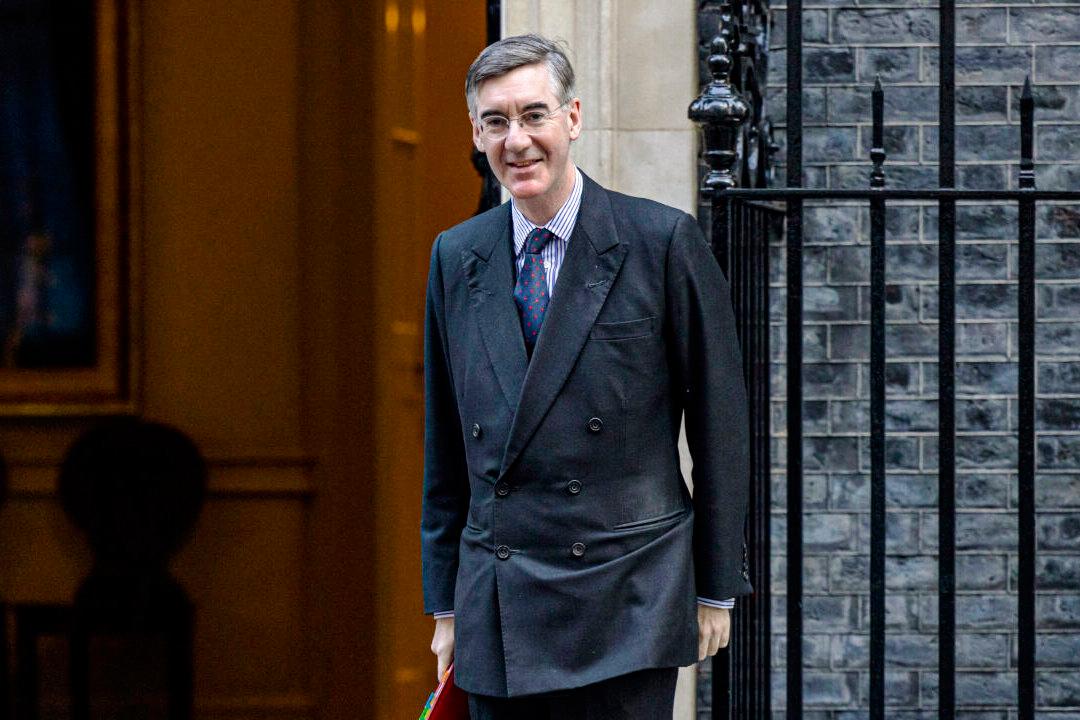
Leader of the House of Commons Jacob Rees-Mogg arrives for a Cabinet Meeting at Downing Street in London on Nov. 16, 2021. Rob Pinney/Getty Images
Former minister Sir Jacob Rees-Mogg is pushing for a new law that will make it more difficult for banks to shut down people’s accounts.
It comes amid ongoing suspicion that banks have been closing customers’ accounts over their
political exposure or
views.





